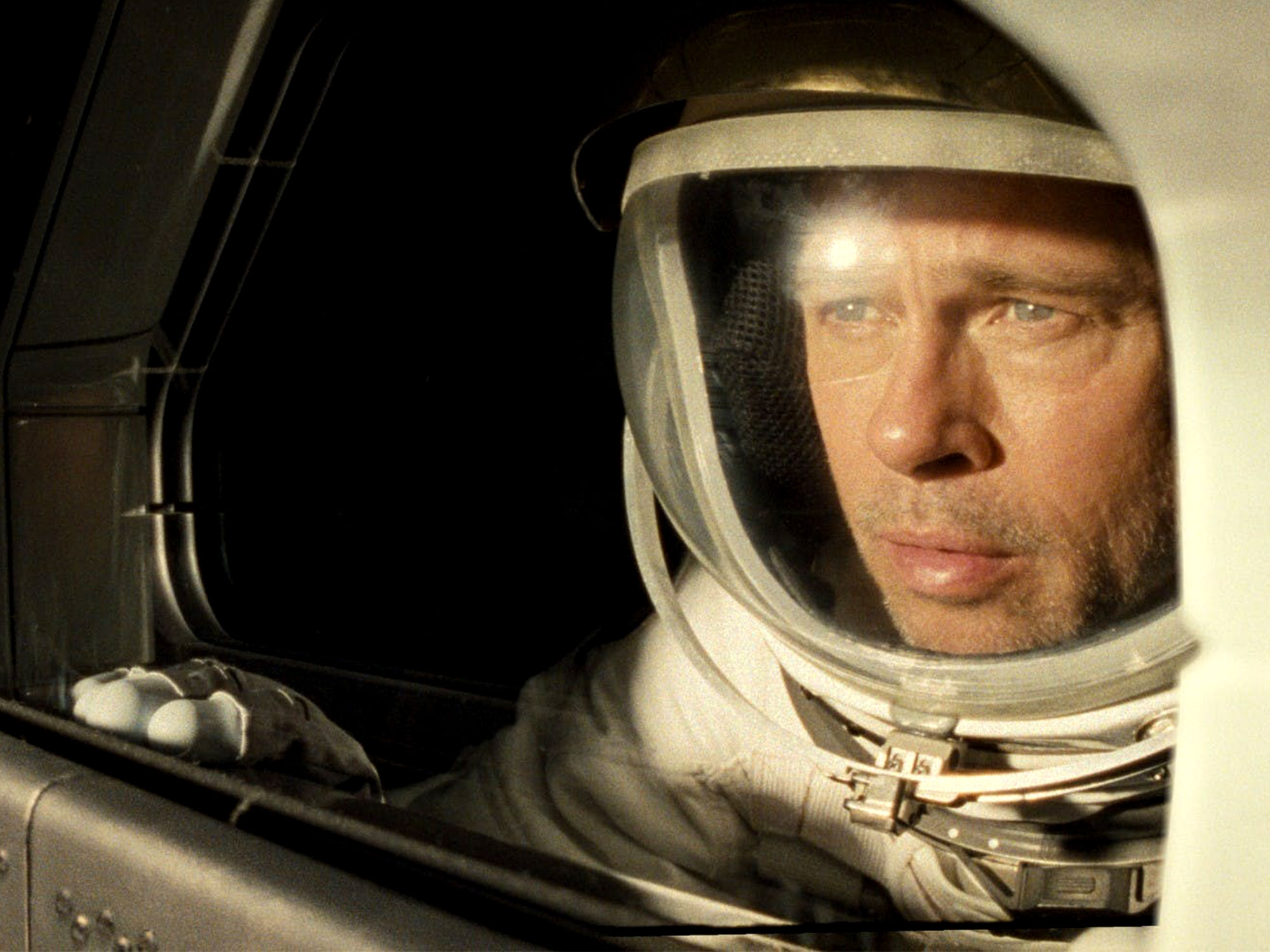I so wanted to laugh at Ad Astra as it sped towards its climax. Such is the power of James Gray. The underappreciated director finds a way to merge a truly grand scope of world building with the tiny scope of emotional character building in a mostly satisfying way. It’s not Gravity, but Ad Astra is still a rewarding experience, especially for all those younger kids traumatized by their frayed relationship to their fathers.
Cliff McBride (Tommy Lee Jones), the world’s most famous astronaut, disappeared several years ago on a secret space mission. His son Roy (Brad Pitt), following in his dad’s footsteps, has become an astronaut too, and become famous for keeping a cool head under pressure. After something called The Surge, which stops electricity for minutes at a time across the planet, Roy is recruited into a secret mission. The Surge is coming from his father’s ship near Neptune, and, as a shock to Roy, his father might actually still be alive out there. Roy then heads to the outer edges of space to make contact with his dad, stop The Surge, and maybe get his dad back home.
Ad Astra is at its best when doing grand world building. The movie opens with Roy repairing a giant space antenna outside of Earth’s atmosphere. Hoyte Van Hoytema, the cinematographer, gives us these eye popping panorams of sunrises, sunsets, and the Earth in general, reminding everyone how giant the scope of Ad Astra is going to be. We’re at a point in human history where we’ve begun to settle different moons and planets. Roy’s trip to the moon is probably the most interesting; even though exploring gives hope to humanity, the moon base shows how we still bring everything about humanity with us, good and bad. Greed, the gig economy, and war exist up there as much as they are a part of Earth. We also learn about who’s traveling out into space, as Roy comes across various types of expeditions along his journey. Director James Gray shines brightest here, as the isolation and quiet amps up the tension of every seemingly abandoned ship, that is slowly inspected by Roy or other crew members. Gray’s direction helps immediately set up the stakes in Ad Astra as Roy goes on this grand search for his father’s ship.
But as should be obvious by now, Roy’s not in this to save the planet, even as he insists to his psychological evaluation program he’s trying to fool. He just wants to understand and reconnect with his dear old daddy. Gray and Ethan Gross, the writers of the film, are trying to ground this space epic in something they feel most people will understand or relate to, like any good filmmaker. However, by making the relationship between fathers and sons their central theme, I think the story they choose to tell needs more time, and comes off a tad too simple, lessening the emotional impact its going for. The movie sets up Roy as this guy who’s always cool under pressure, and has to consistently save others who crack under it, making him seek out isolation. Had THAT been the central theme, Roy learning the depths of isolation out in space, I think the story would become much more subtle, and build all sorts of extra dread and suspense, climaxing with Roy confronting his dad all these years later.
Ad Astra means “to the stars.” But even as we venture to the stars, our drive usually starts inward. Brad Pitt and Tommy Lee Jones are so broken as father and son, Brad has to travel all the way to Neptune just to talk to his dad. Yikes! Well take Ad Astra as a lesson to all those broken father/child relationships: at least your dad probably didn’t hope a space flight to Neptune to get away from you…

